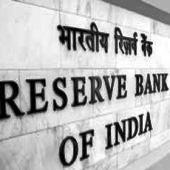 | « Back to article | Print this article |
'Stronger RBI steps likely if inflation worsens'
 The Reserve Bank of India is likely to take tougher action than Friday's revision in its key policy rates if headline inflation aggravates, says chief statistician Pronab Sen.
The Reserve Bank of India is likely to take tougher action than Friday's revision in its key policy rates if headline inflation aggravates, says chief statistician Pronab Sen.
"If non-agricultural inflation goes up, RBI is likely to take much stronger action (in its forthcoming annual monetary policy announcement next month)," Sen said.
In a surprise move late Friday, RBI raised its short-term lending and borrowing rates -- the repo rate (the rate at which it lends to banks) and the reverse repo rate (the rate at which banks park their surplus funds with it) -- by 0.25 per cent each to 5 per cent and 3.75 per cent, respectively, to cool off runaway inflation, which has already crossed the central bank's forecast for March at 8.5 per cent, signalling interest rake increase.
The central bank is slated to review its monetary policy on April 20, when further rise in policy rates are feared.
"Agriculture inflation has started to come off. But, non-agricultural inflation has actually risen and that's the one which is of more concern now," Sen said.
Though food inflation has started to moderate, the WPI-based headline inflation has been on the rise since last October, when it was in the negative territory.
Food inflation fell from the high of nearly 20 per cent in December to 16.3 per cent in the week ended March 6. Overall inflation, however, has risen to 9.89 per cent in February from 8.56 per cent in January, driven by the spike in fuel prices and food articles.
For March, Sen fears worse inflation figures. He said the current inflation rate was alarming, as prices of non-farm group had gone up and there was a fear of food inflation spilling over to the other sectors of the economy, primarily into the manufacturing sector.
"March will have a very high inflation because of the base effect and the fuel price increase. . .Surely, it will be in double digits. And, increase in rates in April will depend on the inflation figure for March," Sen pointed out.
On Friday's policy action, Sen, who is also the secretary in the ministry of statistics and programme implementation, said it was pretty much expected due to rising inflation.
However, he said the increase was merely a signal. "RBI has sent a signal. It has signalled its willingness to increase interest rates, as 25 bps is neither here nor there. It will make no difference. RBI's message is:'look inflation is a concern and we are willing to take steps'," Sen said.
Sen, however, argued that the repo increase was not intended to dampen the demand. "It has just sent a signal rather than actually trying to cut down on demand. Intention is not to cut down on demand," he added.
The increase in policy rates is more to set them in line with the increase in cash reserve ratio, or the amount banks keep with the central bank. In its third quarter policy review on January 29, RBI increased the cash reserve ratio by 0.75 percentage points to 5.75 per cent to suck Rs 36,000 crore (Rs 360 billion) out of the system.
"The repo increase more or less validates the CRR raise. After the increase in CRR, banks raised both deposit and lending rates. What RBI has done is just aligning its rates with the prevailing market interest rates," he said.